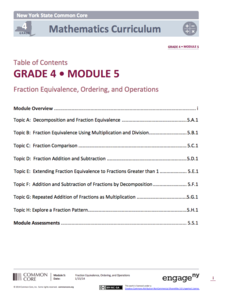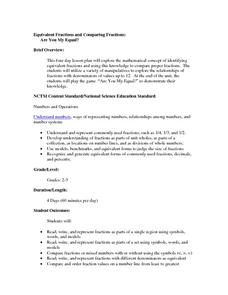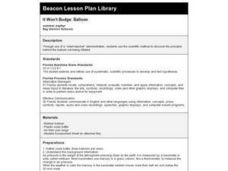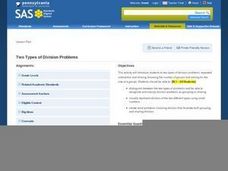Curated OER
Ways to Extend the Learning With A Fraction Unit
Here are some ideas for extending the learning beyond traditional fraction lessons.
EngageNY
Fraction Equivalence, Ordering, and Operations
Need a unit to teach fractions to fourth graders? Look no further than this well-developed and thorough set of lessons that takes teachers through all steps of planning, implementing, and assessing their lessons. Divided into eight...
Curated OER
Equivalent Fractions and Comparing Fractions
How can you tell if fractions have equal value? Use various collaborative activities to demonstrate the ways to determine whether or not fractions are equivalent.
National Endowment for the Humanities
Victory and the New Order in Europe
A New Order in Europe calls for a new lesson plan! This third plan in a series of four sequential lessons encourages high schoolers to read primary sources about the development of the New Order and follow up their knowledge with a...
Curated OER
Recognizing Equivalent Fractions
If you're working on a fraction unit, this resource could be a great way to assess student learning or to extend your lesson on equivalent fractions. Once they have filled in the missing number in each pair of fractions, youngsters work...
Scholastic
Dear Miss Breed
This compelling plan based on the letters in the book Dear Miss Breed engages readers in learning what it was like for Japanese Americans following the attacks at Pearl Harbor. After reading the letters, young scholars will...
Curated OER
Math Handbook: Trigonometry
You'll be spinning in unit circles once you read through this jumbo-sized resource of everything you need to know about trigonometry. Each page has color-coded examples with explicit directions that detail the problems and...
National Security Agency
Multiple Representations of Limits
After an introductory activity to demonstrate the theory of a limit, additional activities approach a limit from graphical, numerical, and algebraic methods. The activity looks at the multiple ways of understanding and evaluating a...
Math Sphere
Co-Ordinates
Challenge young mathematicians' understanding of the coordinate plane with this series of skills practice worksheets. Offering 10 different exercises that involve identifying ordered pairs,...
Curated OER
Finding Fractional Parts Using an Area Model
Students explore math functions by completing a problem solving worksheet in class. In this division lesson, students utilize visual aides such as marshmallows and candy to visualize the act of division. Students complete a division...
Curated OER
Directing Me
First graders practice the language of directions and positions in this unit. They follow sequences in which they rotate their bodies and other objects through quarter and half turns while participating in games.
Curated OER
Discovery
High schoolers explore patterns in number problems. They devise a strategy to solve a number problem. Students estimate and calculate answers, making efficient use of a calculator, where appropriate, as part of solving a problem. They...
Curated OER
It Won't Budge: Balloon
Eighth graders use the scientific method to discover why a balloon is not inflated.
Pennsylvania Department of Education
Two Types of Division Problems
Learners discover the two types of division problems. In this number division lesson, students identify repeated subtraction and sharing division problems. Learners create word problems utilizing the two different types of...















